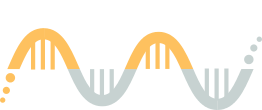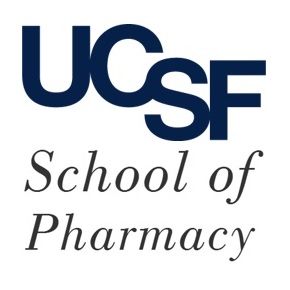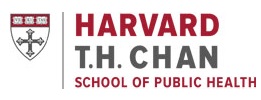Publications
An evolutionary compass for detecting signals of polygenic selection and mutational bias. Evol Lett 3, 69-79 (2019).
Exome sequencing reveals a high prevalence of BRCA1 and BRCA2 founder variants in a diverse population-based biobank. Genome Med 12, 2 (2019).
Extreme Polygenicity of Complex Traits Is Explained by Negative Selection. Am J Hum Genet 105, 456-476 (2019).
Genome sequencing analysis identifies Epstein-Barr virus subtypes associated with high risk of nasopharyngeal carcinoma. Nat Genet 51, 1131-1136 (2019).
Global Biobank Engine: enabling genotype-phenotype browsing for biobank summary statistics. Bioinformatics 35, 2495-2497 (2019).
GRIK5 Genetically Regulated Expression Associated with Eye and Vascular Phenomes: Discovery through Iteration among Biobanks, Electronic Health Records, and Zebrafish. Am J Hum Genet 104, 503-519 (2019).
Identification of rare-disease genes using blood transcriptome sequencing and large control cohorts. Nat Med 25, 911-919 (2019).
Methods for the Analysis and Interpretation for Rare Variants Associated with Complex Traits. Curr Protoc Hum Genet 101, e83 (2019).
A multi-task convolutional deep neural network for variant calling in single molecule sequencing. Nat Commun 10, 998 (2019).
Opportunities and challenges for transcriptome-wide association studies. Nat Genet 51, 592-599 (2019).
Polygenic adaptation on height is overestimated due to uncorrected stratification in genome-wide association studies. Elife 8, (2019).
Quantification of frequency-dependent genetic architectures in 25 UK Biobank traits reveals action of negative selection. Nat Commun 10, 790 (2019).
Ultra-Rare Genetic Variation in the Epilepsies: A Whole-Exome Sequencing Study of 17,606 Individuals. Am J Hum Genet 105, 267-282 (2019).
Allelic Heterogeneity at the CRP Locus Identified by Whole-Genome Sequencing in Multi-ancestry Cohorts. Am J Hum Genet 106, 112-120 (2020).
Analysis in case-control sequencing association studies with different sequencing depths. Biostatistics 21, 577-593 (2020).
Assessing Digital Phenotyping to Enhance Genetic Studies of Human Diseases. Am J Hum Genet 106, 611-622 (2020).
A common variant in PNPLA3 is associated with age at diagnosis of NAFLD in patients from a multi-ethnic biobank. J Hepatol 72, 1070-1081 (2020).
On the cross-population generalizability of gene expression prediction models. PLoS Genet 16, e1008927 (2020).
Dynamic incorporation of multiple in silico functional annotations empowers rare variant association analysis of large whole-genome sequencing studies at scale. Nat Genet 52, 969-983 (2020).
Efficient Estimation and Applications of Cross-Validated Genetic Predictions to Polygenic Risk Scores and Linear Mixed Models. J Comput Biol 27, 599-612 (2020).
Electronic health record phenotypes associated with genetically regulated expression of CFTR and application to cystic fibrosis. Genet Med 22, 1191-1200 (2020).
Epidemiology of Functional Seizures Among Adults Treated at a University Hospital. JAMA Netw Open 3, e2027920 (2020).
Evidence for secondary-variant genetic burden and non-random distribution across biological modules in a recessive ciliopathy. Nat Genet 52, 1145-1150 (2020).
A fast and scalable framework for large-scale and ultrahigh-dimensional sparse regression with application to the UK Biobank. PLoS Genet 16, e1009141 (2020).
Fast Lasso method for large-scale and ultrahigh-dimensional Cox model with applications to UK Biobank. Biostatistics (2020). doi:10.1093/biostatistics/kxaa038
FasTag: Automatic text classification of unstructured medical narratives. PLoS One 15, e0234647 (2020).
Genetic diagnoses in epilepsy: The impact of dynamic exome analysis in a pediatric cohort. Epilepsia 61, 249-258 (2020).
Genome-Wide Analysis Reveals Mucociliary Remodeling of the Nasal Airway Epithelium Induced by Urban PM. Am J Respir Cell Mol Biol 63, 172-184 (2020).
Human Demographic History Impacts Genetic Risk Prediction across Diverse Populations. Am J Hum Genet 107, 788-789 (2020).
Identifying causal variants and genes using functional genomics in specialized cell types and contexts. Hum Genet 139, 95-102 (2020).
Impact of admixture and ancestry on eQTL analysis and GWAS colocalization in GTEx. Genome Biol 21, 233 (2020).
Improving the trans-ancestry portability of polygenic risk scores by prioritizing variants in predicted cell-type-specific regulatory elements. Nat Genet 52, 1346-1354 (2020).
Lung Function in African American Children with Asthma Is Associated with Novel Regulatory Variants of the KIT Ligand and Gene-By-Air-Pollution Interaction. Genetics 215, 869-886 (2020).
Modeling epistasis in mice and yeast using the proportion of two or more distinct genetic backgrounds: Evidence for "polygenic epistasis". PLoS Genet 16, e1009165 (2020).
Multi-Ethnic Genome-Wide Association Study of Decomposed Cardioelectric Phenotypes Illustrates Strategies to Identify and Characterize Evidence of Shared Genetic Effects for Complex Traits. Circ Genom Precis Med 13, e002680 (2020).
Neurophysiological and Genetic Findings in Patients With Juvenile Myoclonic Epilepsy. Front Integr Neurosci 14, 45 (2020).
Operating characteristics of the rank-based inverse normal transformation for quantitative trait analysis in genome-wide association studies. Biometrics 76, 1262-1272 (2020).
Phenome-based approach identifies RIC1-linked Mendelian syndrome through zebrafish models, biobank associations and clinical studies. Nat Med 26, 98-109 (2020).
A phenome-wide association study of 26 mendelian genes reveals phenotypic expressivity of common and rare variants within the general population. PLoS Genet 16, e1008802 (2020).
A positively selected FBN1 missense variant reduces height in Peruvian individuals. Nature 582, 234-239 (2020).
PSCAN: Spatial scan tests guided by protein structures improve complex disease gene discovery and signal variant detection. Genome Biol 21, 217 (2020).
Race, socioeconomic deprivation, and hospitalization for COVID-19 in English participants of a national biobank. Int J Equity Health 19, 114 (2020).
Rare protein-altering variants in ANGPTL7 lower intraocular pressure and protect against glaucoma. PLoS Genet 16, e1008682 (2020).
A Robust Method Uncovers Significant Context-Specific Heritability in Diverse Complex Traits. Am J Hum Genet 106, 71-91 (2020).
A Transcriptome-Wide Association Study Identifies Candidate Susceptibility Genes for Pancreatic Cancer Risk. Cancer Res 80, 4346-4354 (2020).

 ]
] 



